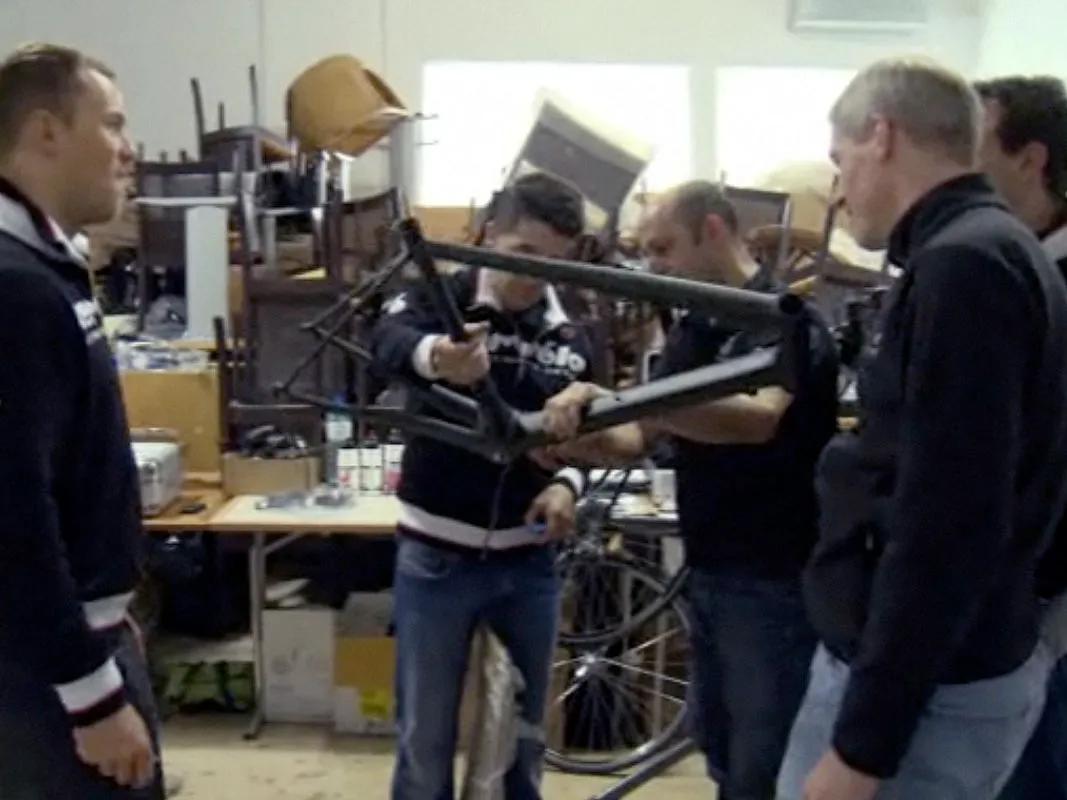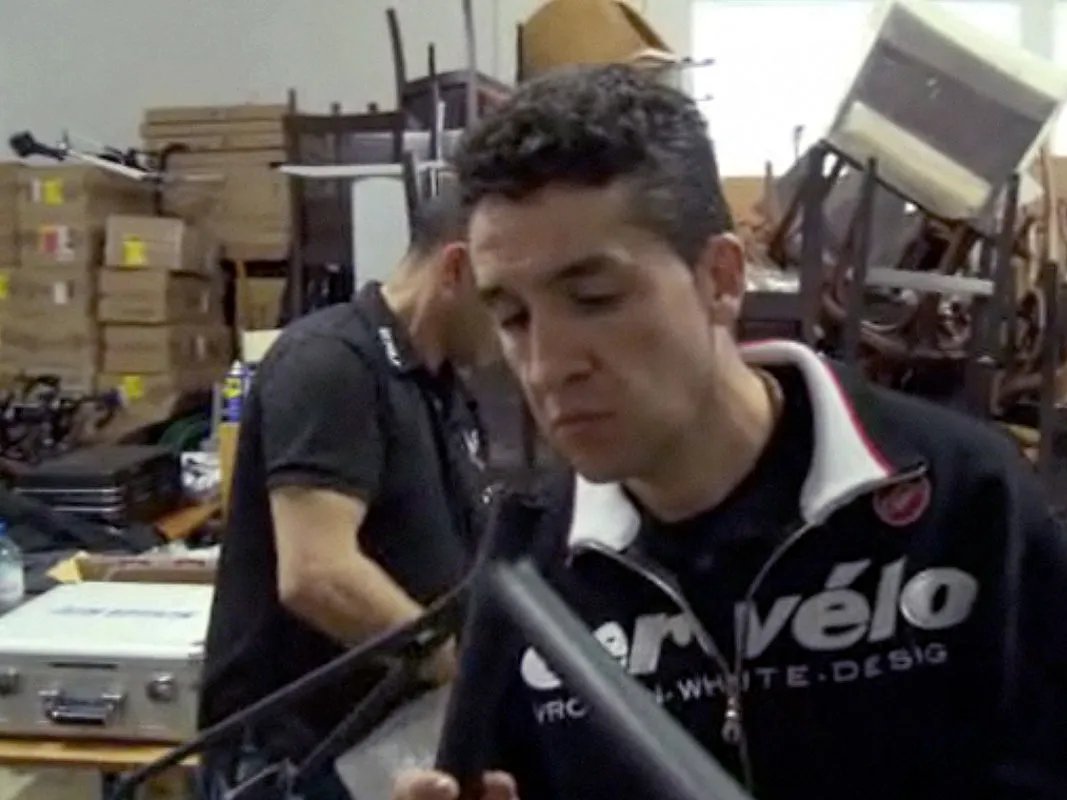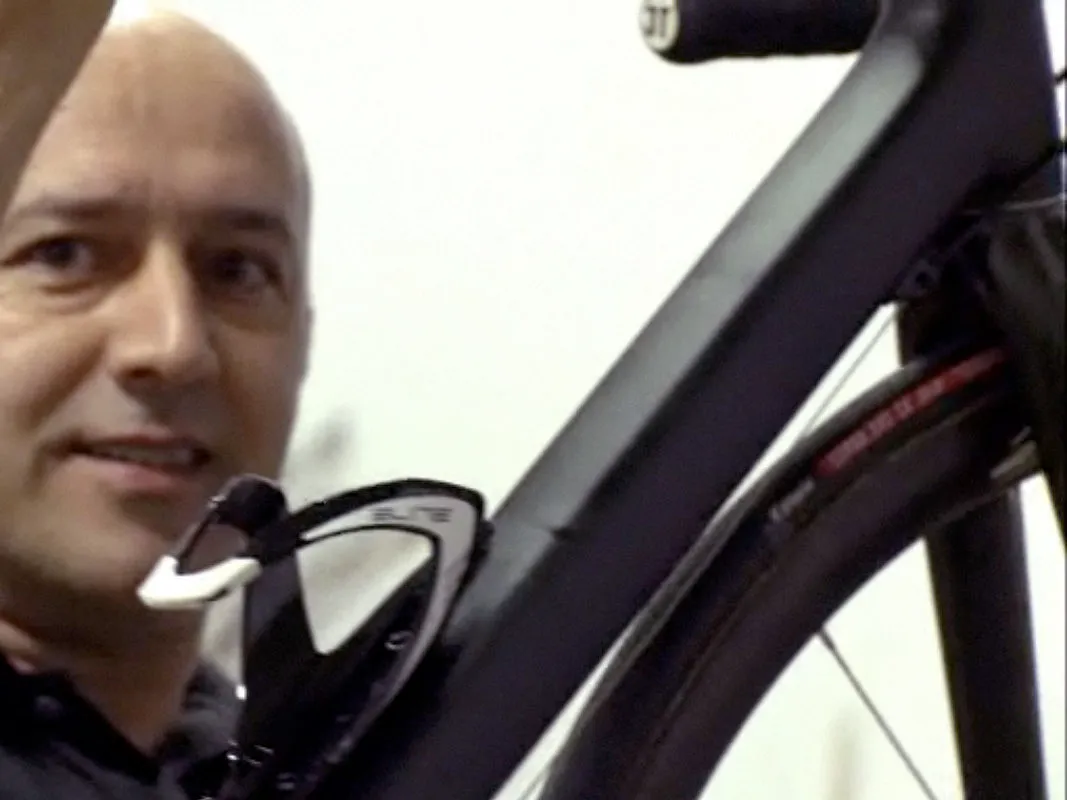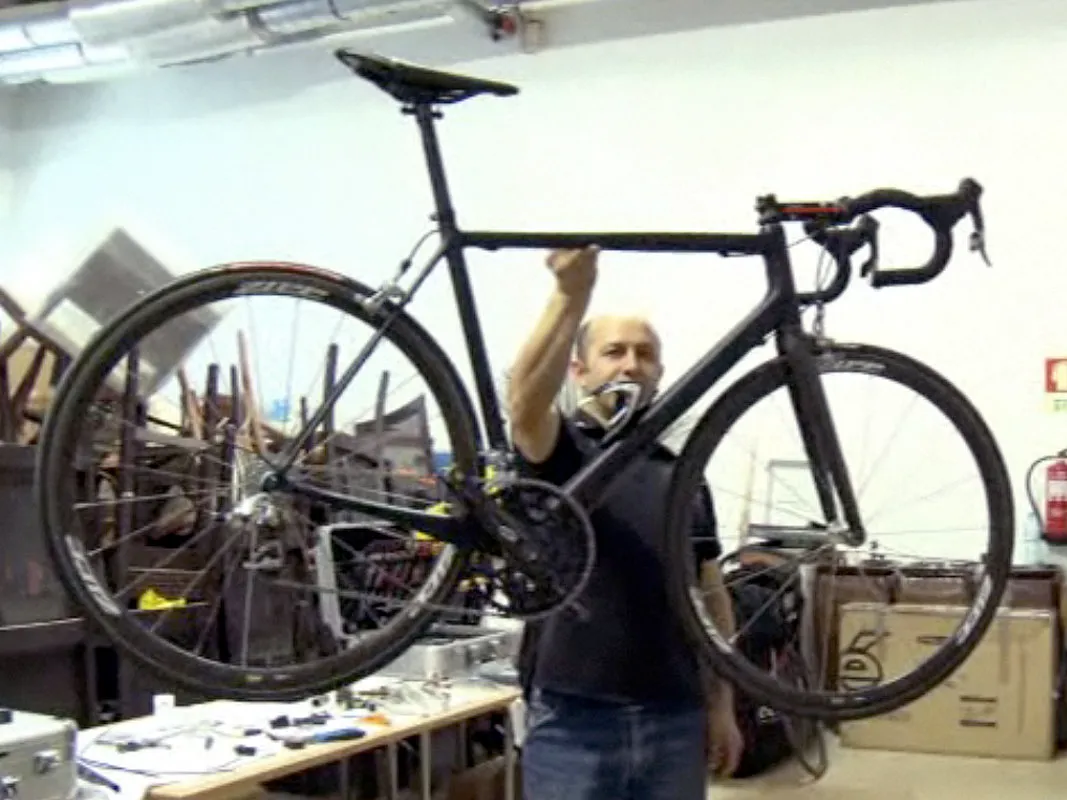Cervelo's new west coast test facility has yielded its first fruit, an ultralight carbon road frame dubbed 'Project California' that is claimed to weigh just 700g in a 54cm size.
Listen carefully to the video posted on Cervelo's website, however, and it seems the prototype may be even lighter, as the one provided to TestTeam rider Thor Hushovd was just 648g.
Cervelo co-founder Gerard Vroomen would not release any additional information to what's already been revealed online but the grainy images suggest a sort of 'super' R3 in terms of the basic shape and layout. The down tube uses a more radically shaped 'squoval' profile, the chainstays are notably tall and wide, and the seatstays are just as spindly.
Judging by the flat black appearance, it also appears that the Project California frame has carbon fibre dropouts instead of the R3-SL's aluminium ones and some sort of integrated bottom bracket. Our guess would be either direct drop-in bearings or press-fit cups but not standard BB30 so as to eliminate the need for an alloy sleeve.
It's also unclear whether a tapered head tube is included – though it would improve stiffness and allow for a bigger down tube, it would also add grammes rather than remove them. External cable routing is evident along with a conventional, round telescoping seatpost. According to Hushovd's posted video account, the biggest difference relative to current models is the greater front triangle and bottom bracket stiffness but with the same level of comfort as the production S2 and S3.
Project California may be ultralight, impressively stiff and yet very comfortable but it will also be extremely expensive – at least for now. In contrast to Cervelo's usual overseas manufacturing, each Project California frame will be hand-built in the USA by the same engineers who designed it, thus adding obvious labour and investment costs over mass production and making for a limited yield of about one frame per day. Scheduled availability is August 2010 and each frame will command a cost of US$9,600/€8,000 (approx £6,200).
Ultimately, though, we expect the engineering lessons gleaned from the project to make their way into production models. Shell out the money now if you need the exclusivity and 'Made in USA' cachet but patient consumers will almost certainly be able to get something similar for more reasonable prices sometime down the line.



